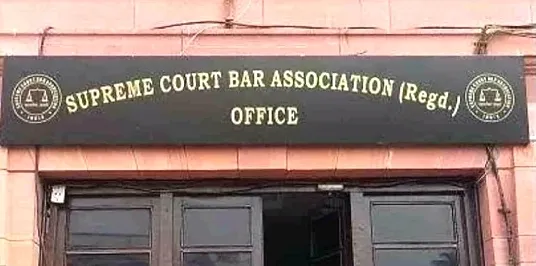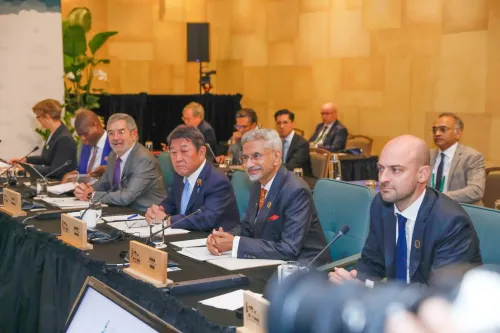Should the Supreme Court Establish Guidelines on Menstruation Checks?

Synopsis
Key Takeaways
- Protection of women's rights during menstruation is essential.
- Guidelines are needed to maintain dignity and privacy in workplaces and schools.
- Incidents of period-shaming must be addressed.
- Legal action against violators is crucial for accountability.
- Awareness and education about menstruation need to improve.
New Delhi, Nov 12 (NationPress) The Supreme Court Bar Association (SCBA) has petitioned the apex court to lay down guidelines that safeguard the health, dignity, bodily autonomy, and privacy of women and girls during menstruation or related gynaecological matters within workplaces and educational establishments.
This writ petition, submitted under Article 32 of the Constitution, arises from a troubling incident on October 26 at Maharshi Dayanand University in Rohtak, Haryana, where three female sanitation staff were reportedly coerced into providing photographic evidence of their menstruation status to their supervisors.
As per the petition, the workers were summoned for duty on a Sunday due to the visit of the Haryana Governor and faced verbal abuse, humiliation, and pressure until they were forced to take photographs in the washroom.
The supervisors, employed through the Haryana Kaushal Rozgar Nigam Limited, allegedly insisted on receiving photographic proof by requesting images of the workers' sanitary pads.
In the wake of this incident, the university has suspended the two supervisors and initiated an internal investigation.
The Haryana State Commission for Women (HSCW) has also taken notice, asking for reports from the university and Rohtak police.
The Assistant Registrar and the two supervisors have been charged under various provisions of the Bharatiya Nyaya Sanhita, including sections related to assault and the outraging of a woman’s modesty.
Describing the incident as disturbing, the SCBA stated: "Such occurrences are serious violations of the right to life, dignity, privacy, and bodily integrity under Article 21 of the Constitution of India."
The plea also highlighted similar incidents of period-shaming and invasive checks in schools and workplaces, referencing a 2017 case in Uttar Pradesh where 70 girls were allegedly stripped to check for menstrual blood, and a 2020 incident in Gujarat involving 68 college students who were asked to remove their underwear for inspection.
This petition, filed by advocate Pragya Baghel, urges the Centre and the Haryana government to conduct a thorough investigation into the Rohtak incident and to establish nationwide guidelines to protect the health, dignity, bodily autonomy, and privacy of women and girls during menstruation and related gynaecological issues in workplaces and educational settings.









